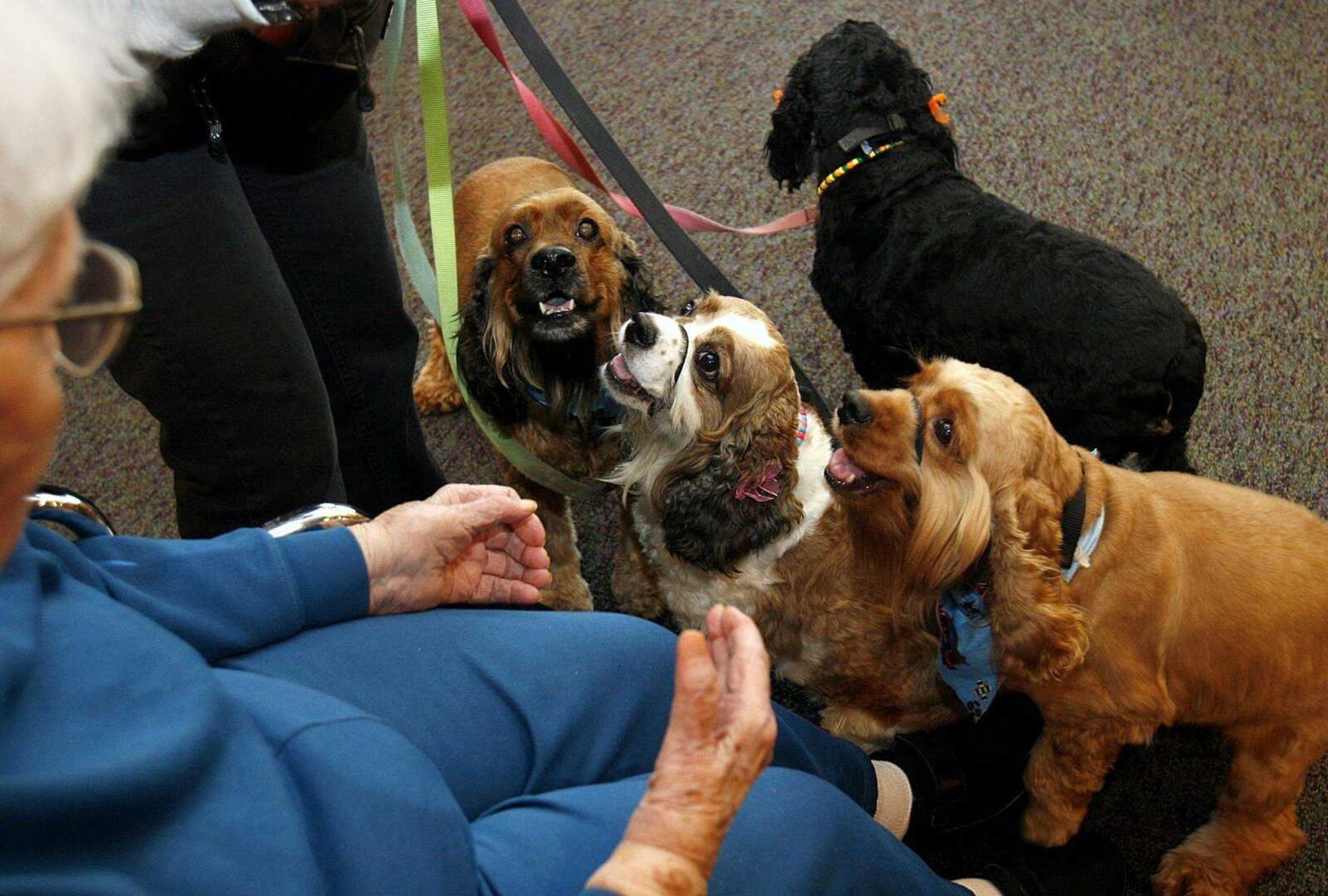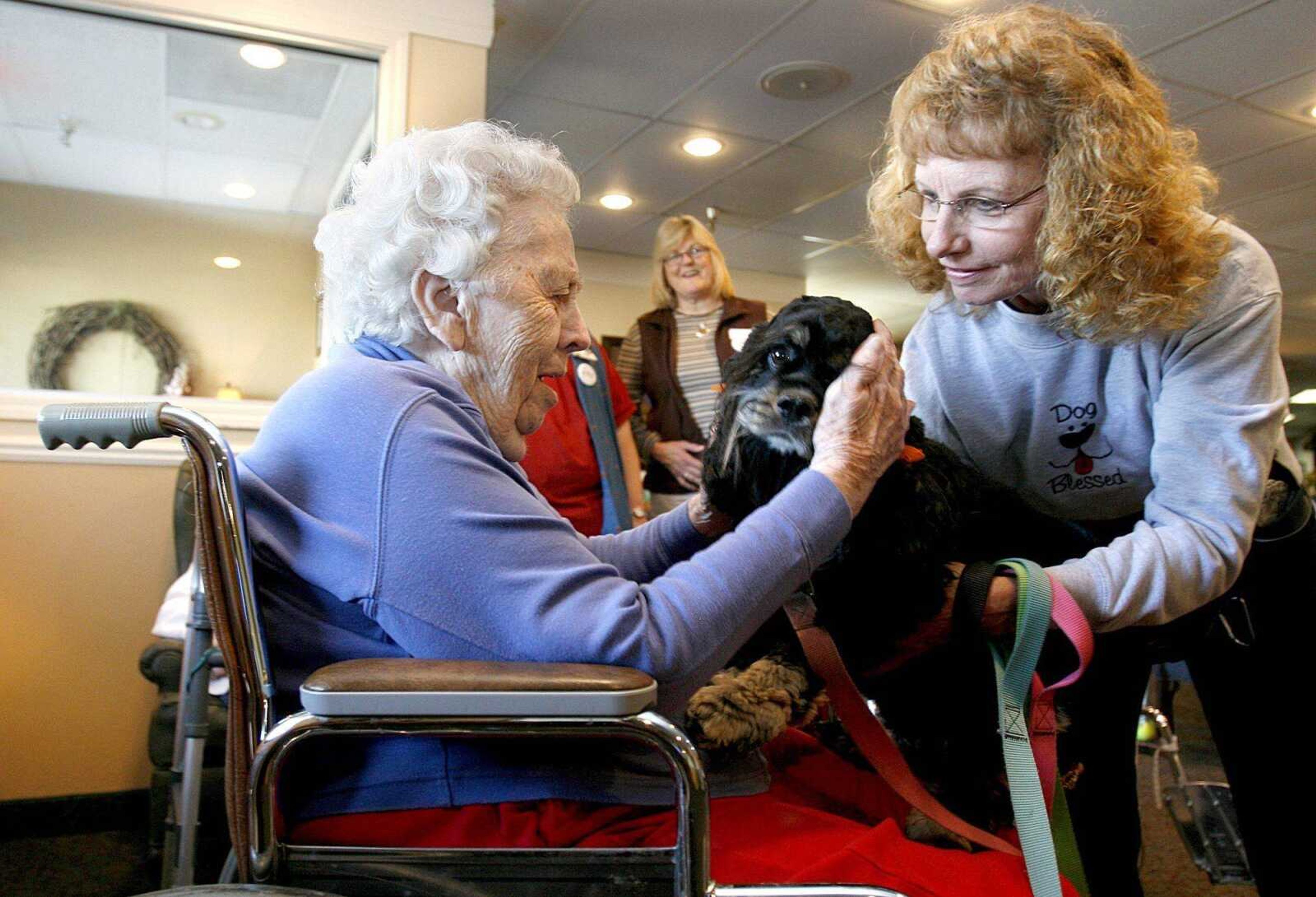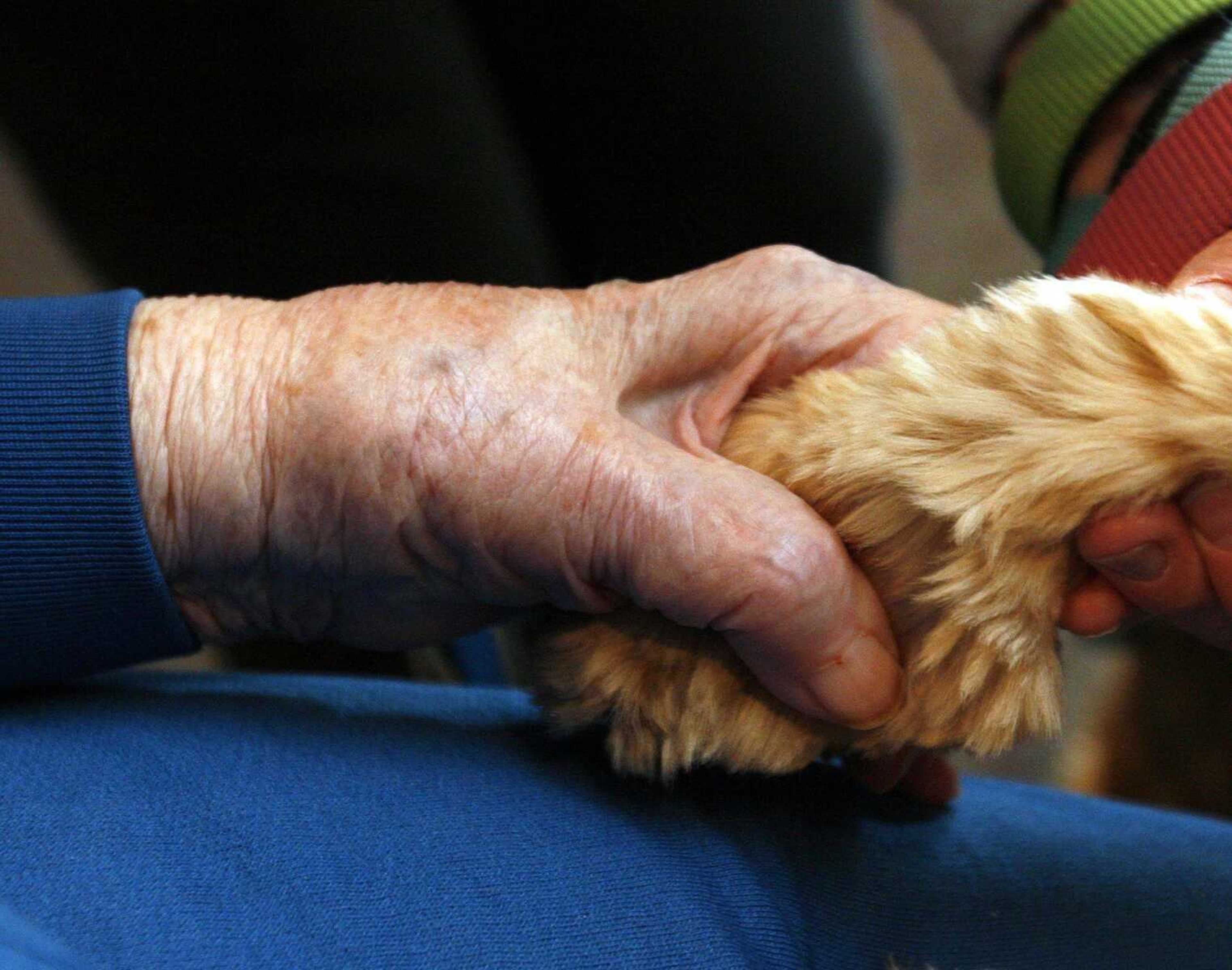Pet therapists
Cocker spaniels Chancellor (Chance for short), Dusty, Midnight and Moonbeam stroll through the halls at area nursing homes, adding a bright spot to the lives of people who reside in nursing homes and cannot have a dog. Chance, Dusty, Midnight and Moonbeam are members of the Pet Pals program, owned by Cape Girardeau resident Marlene Dudley...
Cocker spaniels Chancellor (Chance for short), Dusty, Midnight and Moonbeam stroll through the halls at area nursing homes, adding a bright spot to the lives of people who reside in nursing homes and cannot have a dog.
Chance, Dusty, Midnight and Moonbeam are members of the Pet Pals program, owned by Cape Girardeau resident Marlene Dudley.
Laura Hurst, the program's coordinator, said she would love to have at least a dozen more pet pals so it would be easier to fill the schedule. Currently, 24 pet pals serve the area nursing homes and promote reading at the Cape Area Family Resource Center at an after-school program. Hurst said in 2001 she was a board member who filled the position as coordinator to assure continuation of the program. The program was started by Carla Carr in 1996, Hurst said.
"We are sponsored by the Humane Society. All of our pets are spayed or neutered to prevent distraction," she said.
Some pet pals even deliver therapy to residents. For example, a patient with a brain injury or brain disease who has been unresponsive to contact with people may respond to a visiting dog.
Marilyn Olson Neville, dog obedience instructor at Ace of Animal Behavior, said a visit from a dog can bring back a fond memory to a patient and cause them to respond when other methods have failed.
Or sometimes dogs can be the catalyst for physical therapy.

A dog is capable of catching a ball thrown by a resident and, according to Neville, some dogs can even learn to throw a ball.
The benefits a resident receives from this game include gripping, increasing hand-eye coordination and raising the level of endorphins, a group of hormones found mainly in the brain that reduce the sensation of pain and affect emotions.
Neville said dogs can elicit positive responses people can't always get.
"One of the most exhilirating experiences is when a student sees the gift their dog can give. The reward is not only for the patient but the dog owner, too," Neville said. "I think if dog owners knew the reward of giving this gift there would be more involved in the program."

Dudley had a rewarding experience with Debbie Shank, a resident at Monticello House.
"When I first brought Midnight in there, Debbie said she wanted her. The dog really seemed to calm her down. But the last few times I've been there her door has been shut," Dudley said.
When Pet Pals enters a nursing home they only visit with patients whose doors are open.
Dudley said nursing home visits with the dogs started when her late husband was a resident at a local facility. She brought the family pets to visit because he missed them.
After he died, Dudley decided to undertake training and certification for her dogs to become Pet Pals because she knew how much the residents enjoyed seeing them.
Dudley, who on average spends just a few minutes in each room, said that if she were in a nursing home, Pet Pal visits are something she would like. She has never been without a dog during her lifetime and said that if she could have as many dogs as she wanted, there would be no number on the number she'd own.
Joyce Stacy, social services director at Chateau Girardeau in Cape Girardeau, is the owner of the facility's mascot, 5-year-old Buddy, a golden retriever.
"Buddy is basically a pet therapist," Stacy said. "He has full run of the Health Center and Assisted Living. He knows exactly where to go and who has treats. If someone can't bring a smile to a resident's face, Buddy can do it. He is a real blessing here."
Buddy has had the role of pet therapist since he was 6 weeks old and comes to work with Stacy five days a week. On Saturdays, one of his days off, Pet Pals visits the residents.
Buddy had no formal training. "He went to a puppy class, and all he wanted to do was play. He's home-schooled," Stacy said.
Another of Buddy's roles is similar to that of a Wal-Mart greeter. He walks visitors from the front door and then back, Stacy said.
"He's so smart. He's like Lassie. Buddy will come and barks to tell us if something is wrong."
The time commitment varies in training a dog.
"Some [dogs] don't go through obedience training," Neville said. She recommends a six-week basic training class for dogs and owners so both learn to work in unison.
Because dogs are masters at reading body language, the lure method, achieved through hand signals, enables owners to direct dogs by hand.
Neville administers an evaluation for Pet Pals candidates after training that tests their response to loud noises, rough handling and even their reaction to an umbrella being opened in their face. Tolerance and quick recovery time are important.
For more information on Pet Pals call the Humane Society at 334-5837 or Ace of Animal Behavior at 573-722-3035.
K-9 Training Center, 651-1800, offers comparable Pet Pals training and an American Kennel Club certification that makes pets eligible for Pet Pals certification.
cpagano@semissourian.com
388-3648
Connect with the Southeast Missourian Newsroom:
For corrections to this story or other insights for the editor, click here. To submit a letter to the editor, click here. To learn about the Southeast Missourian’s AI Policy, click here.










